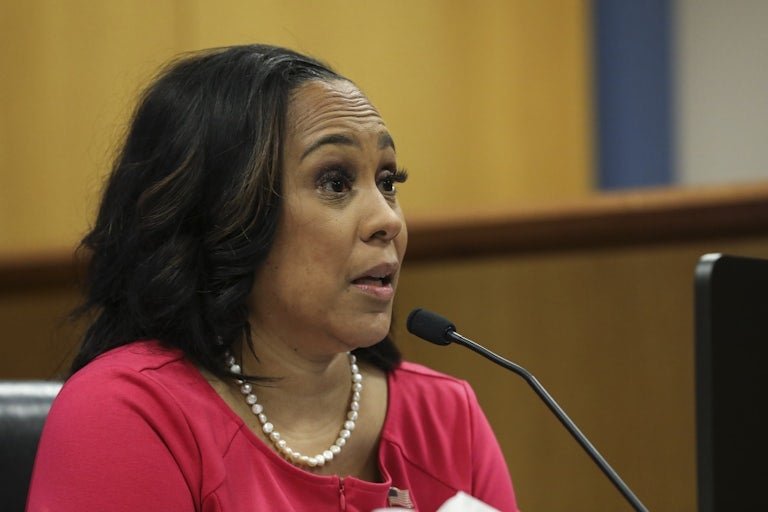Defense Lawyers’ Accusations Against Fani Willis: A Detailed Look into Allegations of Deception, Infidelity, and Ethical Dilemmas
During a recent hearing, defense lawyers leveled a series of accusations against Fulton County District Attorney Fani Willis and a top prosecutor with whom she had an affair. The defense aimed to disqualify Willis from overseeing the election fraud case involving former President Donald Trump and 14 other defendants. Accusations included claims of deception, infidelity, and playing the race card to cover up alleged misdeeds.
Defense attorney Harry MacDougald, representing former Trump Justice Department official Jeffrey Clark, described the situation as a case study in conflicts of interest. He argued that Willis’ involvement tainted the case irreparably. MacDougald emphasized the importance of disqualifying Willis to maintain the case’s integrity.
In response, Chief Deputy District Attorney Adam Abbate defended Willis, stating that the defense failed to substantiate their allegations. He refuted claims that Willis benefited financially from hiring private lawyer Nathan Wade for the case, asserting that no legal or factual basis supported disqualification.
The trial pertains to allegations that Trump and his associates conspired to overturn the 2020 election results in Georgia. Despite four co-defendants pleading guilty, Trump denies the accusations. Disqualifying Willis could delay or derail the trial, affecting its outcome before the November election.
The defense argued that appearances alone justified disqualification, alleging that Willis and Wade’s relationship created an undeniable conflict of interest. They highlighted instances of financial expenditures and personal relationships that they claimed compromised the case’s integrity.
Attorney Craig Gillen accused Willis and Wade of dishonesty regarding the timeline of their relationship, insinuating a cover-up. He criticized Willis for playing the race card and suggested that she used her identity as a Black woman to deflect criticism.
In his defense, Abbate stressed the high burden of proof required for disqualifying an elected district attorney. He emphasized that the defense failed to meet this standard and challenged the credibility of their allegations.
Throughout the hearing, Judge Scott McAfee expressed skepticism regarding the defense’s arguments, questioning legal citations and standards of proof. After extensive deliberation, McAfee refrained from issuing an immediate ruling, opting to review the evidence thoroughly before making a decision.
The hearing underscored the complexity and contentious nature of the case, with both sides presenting compelling arguments. The outcome will have significant implications for the trial’s progression and the parties involved.
In conclusion, the hearing shed light on the allegations against Fani Willis and the challenges of addressing conflicts of interest in high-profile legal proceedings. McAfee’s forthcoming ruling will determine the course of the election fraud case and its impact on the political landscape.
